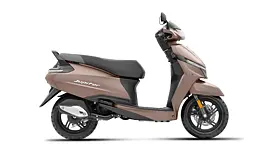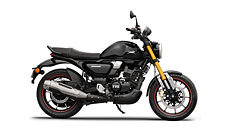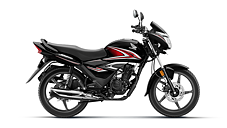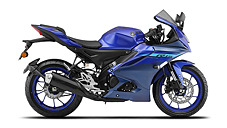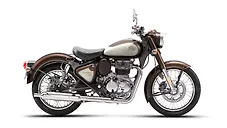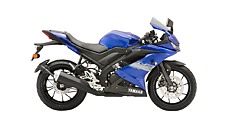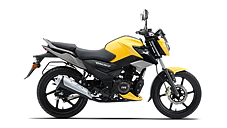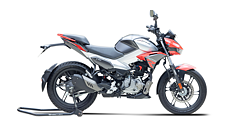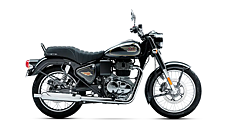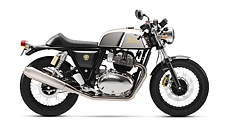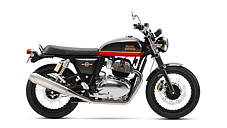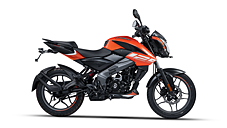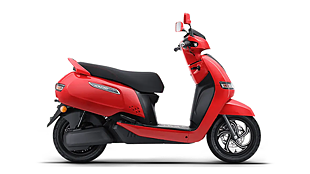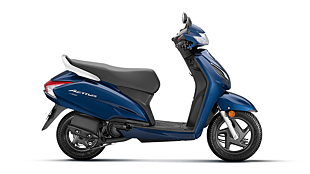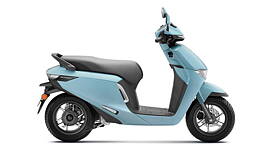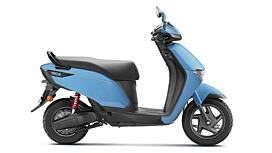Intro

It was in 2013 that the first TVS Jupiter 110 was launched in India. And over the eleven years of its existence, more than 50 lakh units have been sold to millions of families across the country. But, come 2024, we can safely say that the times have changed, and so have the Indian consumer’s likes and preferences. And in keeping with the time narrative, the Jupiter 110 too has evolved, and quite massively.
This new model replaces the older model and has become much more mature when it comes to aesthetics and features, and is also a bit more powerful now. So, here then, is the next-generation TVS Jupiter 110. Let’s delve deeper.
The Visuals

The folks at TVS decided to incorporate a new design language on the new Jupiter 110. They believe that even though the Jupiter 110 has been a family scooter, and it still is, the average age of a family man has come down and the overall aspirations have gone up. Hence, the new Jupiter 110 looks far sharper than ever, especially the front. The main highlight here is the wide LED DRL on the front with an integrated tail light. Below that, there’s a piece of black plastic that gives it an aggressive nose. The headlamp unit, however, still has some similarities to the older model.

From the side too, the Jupiter 110 gets neat styling cues. There are a few sharp lines that are carried from the rear – a way to showcase the sharpness of the scooter. The tail section looks considerably wider and with the long LED tail light, the rear looks quite big for a 110cc scooter. Another reason the new Jupiter 110 looks quite striking is due to the choice of colours. Out of six, three are matte and three are gloss. The one that you see here is my favourite, and possibly the favourite one of the marketing department too because this is their campaign colour.
The Package

The new Jupiter 110 has been built around the same underbone platform that was used to make the Jupiter 125. Hence, a lot of internal components are shared, and that is likely to bring the overall cost down. The 109cc engine has now gone up to 113cc – a way to bump up the power figures a bit. This scooter now makes around 8bhp at 6500rpm and a peak torque of 9.2Nm at 5000rpm. It has a new tech called iGo assist, which when activated, bumps up the torque marginally to 9.8Nm. There have been changes in overall dimensions but the numbers are marginal. The wheels and brake size remains unchanged. But the weight has gone down a bit.

In the features department, this TVS shines a lot. It gets a colour LCD instrument cluster that shows a lot of ride information. Things like average fuel consumption, riding range, service due indicators and clock are present. Bluetooth integration is also available in the top-end variant. There are more features like hazard lamps, turn signal reset, emergency brake assist and voice assist.

Due to the Jupiter 125 connection, this 110 scooter gets bigger under seat storage as the fuel tank has now been moved to below the floorboard. There’s also an external fuel-filling cap and a decently sized front pocket.
The Ride

The ride happened at TVS’ Hosur R&D track and that meant there was no way we could test the ride quality. But after a 20-minute session, a few things are clear about the new Jupiter 110. Firstly, it is super easy to handle. With a kerb weight of 105kg and great weight distribution, this TVS manages to churn out an easy experience, which is a boon in city riding conditions. A lot of this credit also goes to the comfortable seating ergonomics and the scooter’s ability to make you feel home behind the handlebar.

Now the performance figure on this Jupiter is marginally higher than the older model – thanks to an increase in displacement and also due to a new iGo assist tech. And these changes have also made the scooter far smoother and easier to ride. The overall NVH is top-notch – a typical Jupiter trait. There are barely any vibrations and the overall throttle response is smooth. I really like the throttle-off experience – the scooter goes all silent, especially when you roll off the throttle from 50kmph. The new IGo assist is claimed to help in overtaking, but this is something we’ll test properly when we do a road-test of the scooter.
Getting on and off the scooter is an easy affair – thanks to the accessible seat height. Once on the seat, there’s good space to adjust the body. The seat is nice and comfy and the floorboard has plenty of room to rest the feet. In fact, this floorboard easily took the large camera bag, and from TVS’ presentation, it can hold a big LPG cylinder as well.

Other aspects of the scooter like the brakes and tyres are typically commuter-ish in nature. The brakes aren’t too aggressive on bite and feel. It is just apt for a city vehicle. Even the tyres aren’t meant for high-performance runs. In the city, it will do a fine job of offering good grip and maximising fuel efficiency.
Should you buy it?

Definitely yes! The new Jupiter 110 has become far more aspirational than before. It looks really good, and with that sharp front, it is going to attract a lot of buyers. Plus, with some new vibrant colours on offer, the new Jupiter could put some fun in the 110cc segment. Even the performance aspect is well taken care of with its great NVH levels and good acceleration. The scooter handles quite well too – something that will make a lot of buyers’ life easy. Sadly, we don’t have anything to say on the ride quality as of now, but we’ll detail it in our road test. Another aspect of the new Jupiter that works in its favour is the instrument cluster with Bluetooth integration. Its practicality quotient is quite high with a front pocket and underseat storage. In short, the new Jupiter 110 is a great scooter and will help TVS increase its market share in India.
Photography by Kapil Angane
Gallery
1/98
TVS Jupiter Seat
Double Tap to Zoom
















